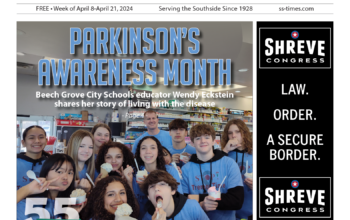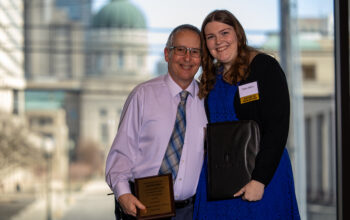By Curtis Honeycutt
It seems like our whole world has been canceled in the past week. Coronavirus has changed our daily lives from school cancelations to large events being postponed or canceled. Yes, the word “canceled” is all over the place, but we’re (rightly so) more concerned about making sure we all stay safe and healthy. As we all adjust to a radically different world than the one we lived in a week ago, I’m going to focus for a minute on British and American English spellings. By doing so, we can know the correct way to spell “canceled” in the U.S.
Why are so many British and American English words spelled differently? Look no further than the All-American boy Noah Webster, Jr. In addition to being buddies with Alexander Hamilton, serving in the Connecticut House of Representatives, and being a fascinating character, Webster was a lexicographer, which is a fancy way of saying “word nerd.” In 1806 he published his first dictionary, called A Compendious Dictionary of the English Language.
Much of Webster’s influence came from his spelling reform. While spelling reform doesn’t sound all that revolutionary, I appreciate Webster’s American view of questioning the way things had always been done. Although he introduced many ideas of different and simplified ways to spell words, Webster gets credit for “defense” (instead of “defence”), “color” (instead of “colour”), and “plow” (instead of “plough”). His 1828 An American Dictionary of the English Language was Webster’s first comprehensive dictionary. It established many of the spelling differences between British and American English, although many other simplifications (like “tung” instead of “tongue” and “soop” instead of “soup”) didn’t catch on.
Mr. Webster’s spelling proposals aimed to weed out pointless letters, making words easier to spell. This included slashing an “L” from words with double “L’s,” including “canceled,” “traveled,” “counselor,” “jewelry,” and “equaled.” Webster’s influence led to new standard American spellings, as the double “L” words are still standard British spellings. Lately, I’ve seen quite a few events being “cancelled,” while the users should be using the one “L” version, “canceled.”
Webster died while working on the second edition of his comprehensive dictionary, at which point the Merriam brothers bought the rights to the project. Thus, the Merriam-Webster Dictionary was born. I can’t wait for the Lin-Manuel Miranda musical version of this thrilling American story.
Is it wrong to spell “canceled” with two “L’s”? Let me just say this: you are more correct spelling it with only one “L.” Stay safe. Wash your hands. We’ll get through this together.
—Curtis Honeycutt is an award-winning syndicated humor columnist. His debut book, “Good Grammar is the Life of the Party: Tips for a Wildly Successful Life,” comes out on May 1.


